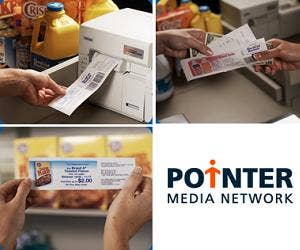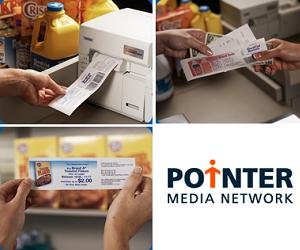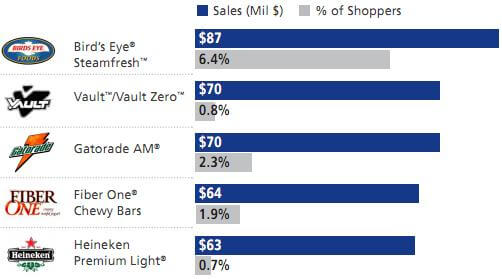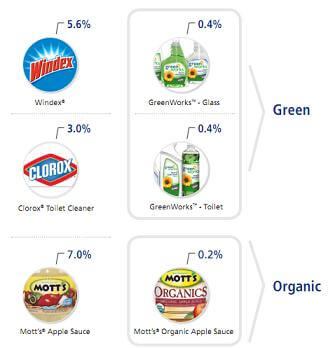Ad Network Monitors 76% of US – Knows What You Buy, What You Want

Share
In tens of thousands of stores in the US and EU, a marketing company is monitoring how you shop. 150 million shoppers, 250 million transactions each week, $400 billion of total sales, and they're just getting started. Pointer Media Network, an offshoot of Catalina Marketing, has its finger on the purchasing pulse of the public. Through frequent shopper IDs and customer loyalty cards in major grocery and pharmacy outlets, Pointer Media can track the brands you buy, the money you spend, and the frequency of your purchases. Armed with that information, Pointer can offer you ads, coupons, and prizes that match your habits and pull you towards their customers' products. Have you ever checked out of a grocery store and been handed a coupon from a little machine next to the receipt printer? That was Pointer Media Network at work. They claim to follow 76% of households in the US, and plan to continue expanding in the years ahead. Place your privacy paranoia aside and get ready to embrace the tracking - the power of this kind of data driven direct marketing is too strong for companies to ignore. Whether in the digital or physical world, consumer monitoring is going to be a big part of our future.
Back in late 2008 when Pointer Media Network was launched, it cemented its place in the new marketing environment with two key ingredients: insanely wide-spread consumer tracking and the "Pivotal Point Consumer." Let's just focus on the first for the moment. Pointer is almost everywhere. When customers sign up for frequent shopper cards to receive discounts in stores, their purchases can be (anonymously) recorded using the ID number. PMN does this in 23,000+ stores in the US (50k or more around the globe) including large retail chains like KMart, Wallgreens, Safeway, Kroger, HEB, Pathmark, Ralphs, Piggly Wiggly, Winn Dixie and many more. They track 150 million such consumer ID numbers accounting for 250 million transactions each week - a total of around $400 billion sales so far (as of early 2010). That accounts for 76% of US households, many of which have been tracked for 62 weeks or more. The amount of data here is staggering.
What does Pointer do with that information? They use it to target you with ads that are very likely to interest you. PMN (and Catalina) have their retail location partners install small printers at checkout counters that produce ads, coupons, or prize rewards. At the time of sale, this machine will use the data Pointer collects to decide which method of advertising will influence you most. Do you often buy ice cream but didn't do so today? Well then here's an ad for a brand you favor. Maybe you'll run back and pick some up. Or perhaps you switched brands of toothpaste recently - Pointer will give you a coupon for your old favorite so that you'll switch back. Haven't been at this store in a while? Pointer may give you a reward, such as $2 off your next purchase here, to get you to return more quickly. With targeted ads, Pointer claims that customers pay more attention - 80% of consumers actually read these pieces of paper when handed to them. That's considerably more than with many traditional ads.
Hand in hand with targeted ads, Pointer offers its advertising customers something just as important: understanding. At the time of launch, PMN revealed their concept of the Pivotal Point Consumer. After tracking 80 million consumers over 2 years in their pilot program, Pointer discovered that 80% of sales for each brand were driven by just a tiny fraction of the overall consumer base - often 3% or less. To give you an idea of what this meant for the industry, the previous assumption was that 20% of the consumer base were responsible for 80% of sales. The discovery that a tiny group, the Pivotal Point Consumers, were the key to good sales was huge. Digital tracking allows advertisers to not only know who is buying their brands, it allows them to reach out and influence those customers directly. In one move, PMN not only claimed that traditional ad targeting was insufficient, it provided a new solution that was supposedly much better. Unsurprisingly, the company has thrived in the years since.
Be Part of the Future
Sign up to receive top stories about groundbreaking technologies and visionary thinkers from SingularityHub.


Pointer Media Networks combination of monitoring and checkout coupons is a powerful example of the new paradigm in advertising: customized consumer contact is everything. In the physical world, we're starting to see this in billboards that change depending on the demographics of people passing by them, or that talk directly to a consumer's phone. Super precise directed ads, however, are far from new in the digital world. Google has been using browser habits to match you with ads for years now - whether in search returns or in your gmail window. Amazon not only offers you coupons, it will send you emails that remind you to make purchases, and it suggests new products based on your past reviews. Catalina Marketing is picking up the digital side of things as well, acquiring a few online coupon companies in the last year.
Now imagine how these systems will improve as data analysis becomes more sophisticated and computation cheaper. Companies like Pointer will be able to connect online and retail store sales. They'll be able to compensate for new factors that could affect your purchases, like time of day, date of the month, or recent headlines in major media outlets. With a better understanding of language, Pointer's computers will be able to pinpoint which keywords or concepts have influenced your shopping, and compensate its advertising strategies accordingly. Undoubtedly they will reach into new arenas of advertising, such as phones, as well. No matter where you go, intelligent ads will follow you.
Whether or not this unrelenting pursuit makes you paranoid, it's a trend that I think we won't be able to avoid in the future. The advantages to the advertisers are great (Pointer reports increases in sales for some brands of 50% or more) and, honestly, the benefits to consumers aren't shabby either. I've used checkout coupons on many an occasion, often with considerable savings. Am I selling my data short when I'm bought off with a few $1 coupons? Maybe so. Still, the Pointer Media Network shows no sign of stopping even if I opted out: they're doing big business in the US, UK, France, Germany, Italy and Japan. Competitors have sprung up, albeit on smaller scales. One way or another, advertisers are going to be able to pay to know more about you. If you can't stop the system, better learn how to game it. I'm going to start switching brands often, float between stores, and always use my frequent shopper cards. Do you want my loyalty Mr. Advertiser? It's up for auction. I'll start the bidding at 50 cents off my favorite energy drink. I'm sure you know the one.
[image credits: Catalina Marketing, Pointer Media Network]
[sources: Catalina Marketing, Pointer Media Network]
Related Articles

Researchers Break Open AI’s Black Box—and Use What They Find Inside to Control It

What the Rise of AI Scientists May Mean for Human Research

Scientists Want to Give ChatGPT an Inner Monologue to Improve Its ‘Thinking’
What we’re reading


